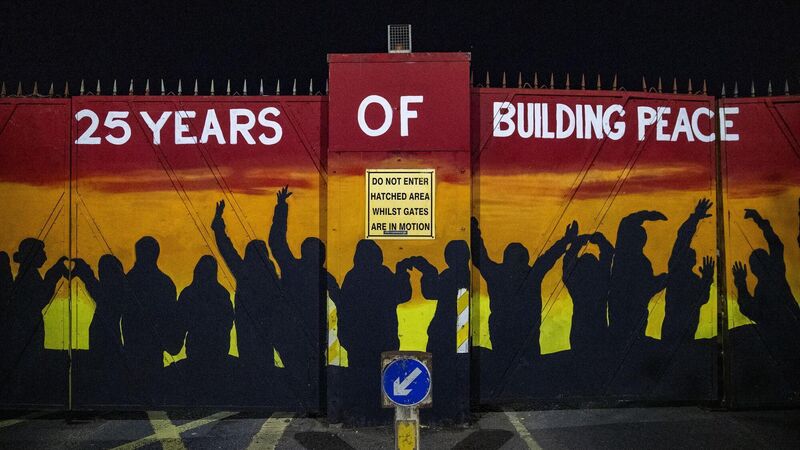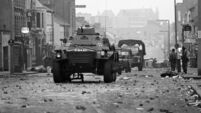'Normality' in North will take more than just restoration of GFA institutions

Lanark Way interface gates which allow traffic to move between republican and loyalist areas of Belfast during limited times of the day was painted ahead of the 25th anniversary of the Good Friday Agreement. Picture: Liam McBurney/PA Wire
The ongoing events to mark the 25th anniversary of the signing of the Good Friday Agreement have included marches, civic events, international conferences, and even a US presidential visit.
We will soon learn what role, if any, these will play in the restoration of the Good Friday Agreement power-sharing institutions and whether they will help cement — and assuage — the myriad hopes, fears, desires, and protections expressed and interwoven in that historic document.
















